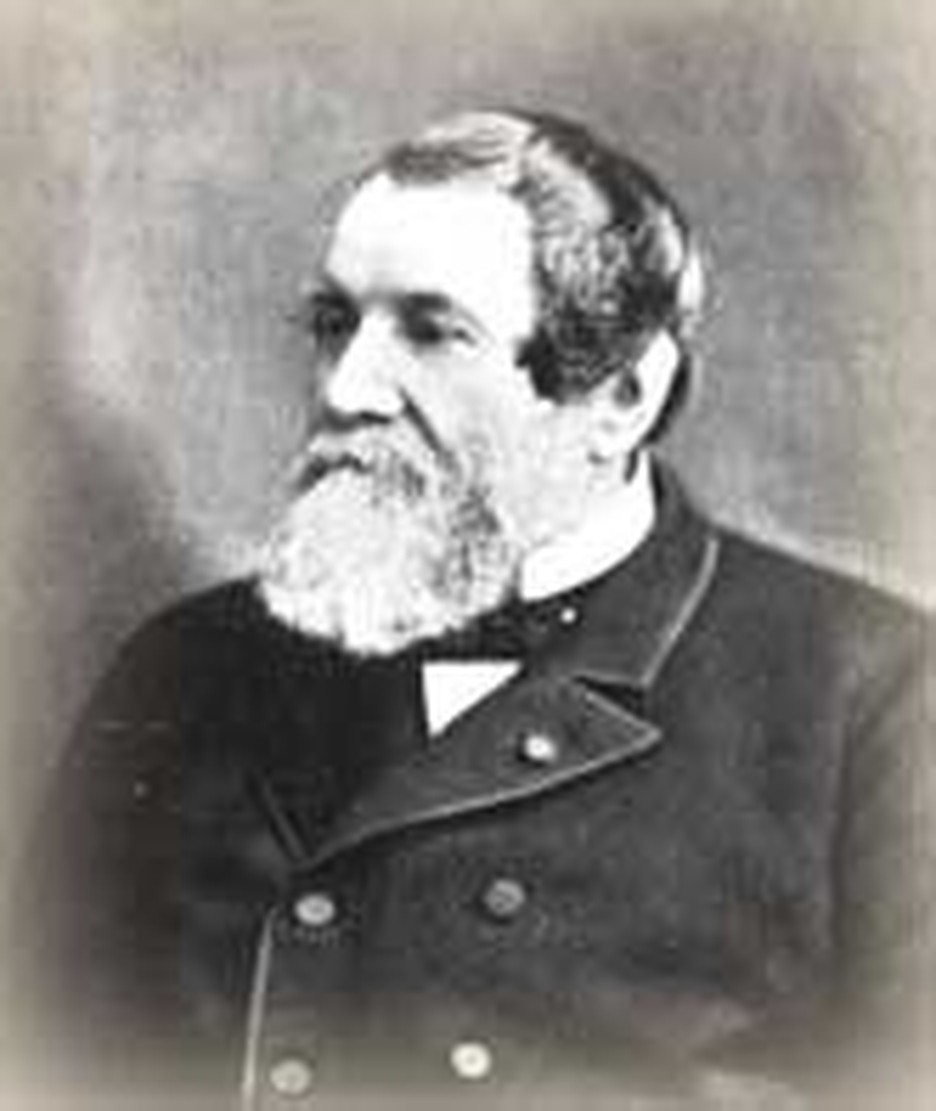
I want everyone who is on Christ's side to stand up." The speaker looked across the little Virginia church as people stood up. Cyrus McCormick did not. When church let out, he went home to bed. His dad came into his room. "Son, don't you know that by being quiet you are rejecting Christ?"
Cy had not thought of it that way. Even though it was past dark, he got right up and rode to Billy McClung's house. Everyone knew Billy was a Christian. "Billy, How can I know Jesus?" he asked. Billy showed Cy that he must confess his sin, right any wrongs he had done to others and commit himself to following Christ. Next Sunday Cy stood up in church and told everyone he had given his life to Jesus.
That Summer, Cyrus helped with the reaping, just as he always had. It was hard work and he grew tired. Even with everyone in the family helping, the wheat began to spoil in the field.
"Turn the hogs loose in the grain, Son. Ain't no way we're going to save it now. Might as well at least fatten them on it." Both knew that what farmers needed was a machine that could reap the wheat quickly, so it wouldn't go to waste. Cy's Dad had tried for a long time to build one, but failed. Now Cy took over.
He tackled the problem with new ideas. First he built his reaper so that the horses could pull beside it and not trample the grain. Next he invented a paddle wheel that pressed wheat against the cutting knife. That way it wouldn't matter if stalks had fallen down; the paddle wheel hauled them up for cutting. Cy gave his cutting blade teeth like a saw and rigged it to slide from side to side, sawing off the wheat. The difference between his machine and mowers was that the blade moved inside a set of "fingers" which held the stalks in place while they were being cut.
When the grain was cut the heads needed to line up in the same direction. Cy made a platform for the cut stalks. This platform could swing to keep its position even in a bumpy field. Someone would walk beside the reaper and rake off the stalks to be tied into bundles. A flat board separated the stalks that were being cut from the grain left standing. To keep things running smoothly, he made a heavy wheel which not only carried the machine but powered all its moving parts at an even speed. A smaller wheel supported the knife.
In less than a year, Cy was done. His invention soon proved itself. On this day, June 21, 1834, he took out a patent on it. About all the patent did was give him standing in court. Everyone stole his ideas. He had to fight legal battles the rest of his life. The only way to make money off his invention was to make a better, cheaper reaper than anyone else. He learned how to do that and was an important figure in the development of factories and franchises in America. His Christian principles found their way into his business practices and earned him even more money; he gave huge sums of money to Christian causes. Biographers acknowledge it is impossible to separate Cy's religious life from his business life.
Bibliography:
- Casson, Herbert N. Cyrus Hall McCormick; His Life and Work. Chicago: A. C. McClurg and Co., 1909.
- Hubert, Philip G. Inventors. New York: Charles Scribner's Sons, 1896.
- Hutchinson, William T. Cyrus Hall McCormick. New York: Aplleton-Century, 1935.
- McCormick, Cyrus. The Century of the Reaper. Boston: Houghton Mifflin, 1931.
- Poole, Ernest. Giants Gone; Men Who Made Chicago. New York: Whittlesey, 1943.
- Thwaites, Reuben Gold. Cyrus Hall McCormick and the Reaper. Madison, Wisconsin: State Historical Society, 1909.
- Wildman, Edwin. Famous Leaders of Industry. Boston: Page Co., 1920.
Last updated May, 2007.


